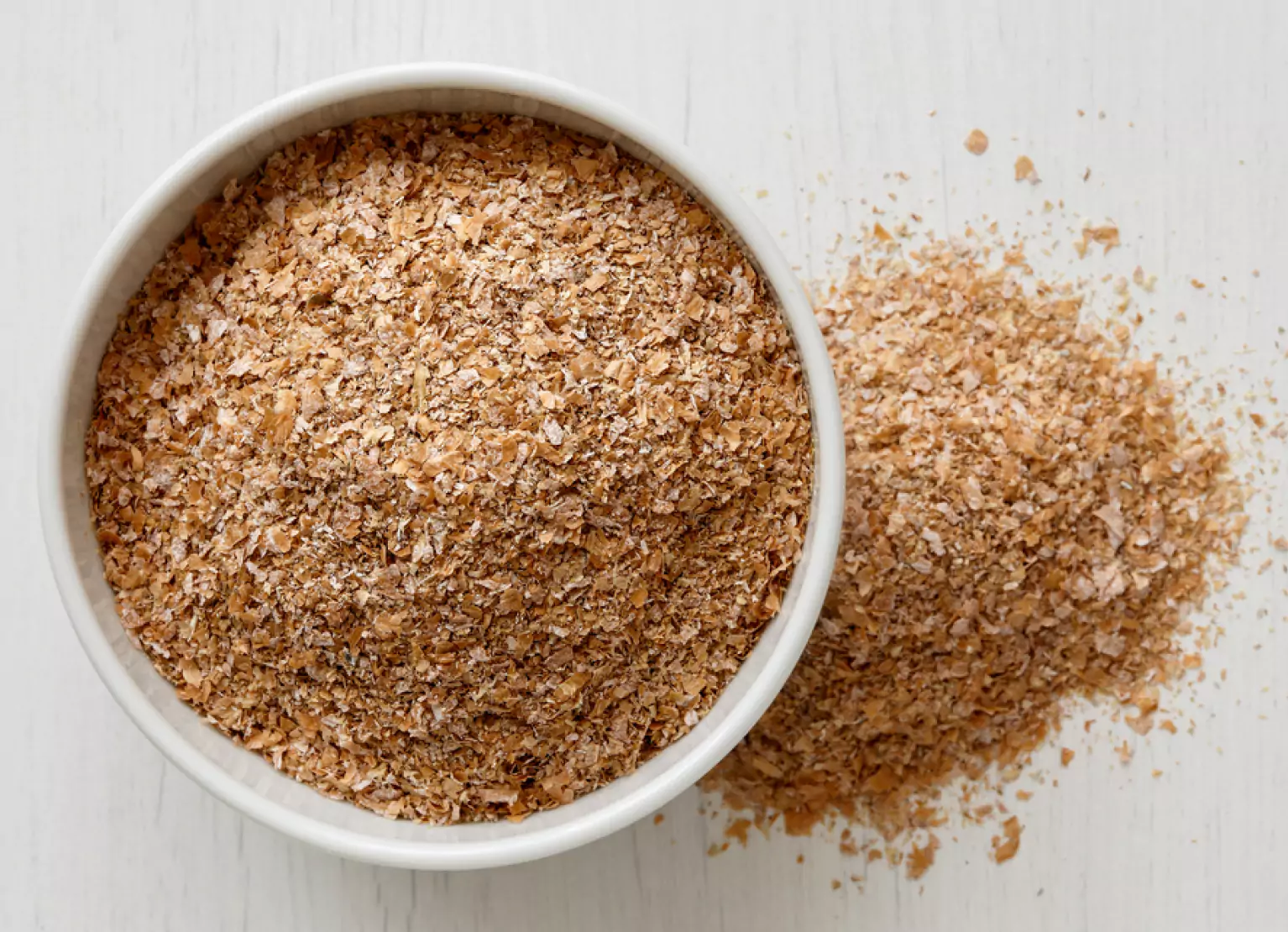The 6 Worst Foods for Osteoporosis

Key Takeaways
You’ve probably heard the basics over and over: get more calcium and vitamin D, drink your milk, and make sure to exercise. When it comes to bone health, nutrition plays a critical role, and getting all the right vitamins and minerals is essential.
However, while it’s good to know what you should be including more of in your diet, it may be just as necessary to understand what not to eat. And while there’s no one-size-fits-all to health and wellness, certain foods can increase the risk of osteoporosis in some.
It’s especially important to focus on your diet to avoid this risk as you grow older. Osteoporosis can occur in men and women at any age, but it’s most commonly identified in older individuals, especially postmenopausal women and those nearing menopause.
That’s why no matter how old you are, you might want to take a closer look at your diet and ensure you’re doing everything you can to keep your bones in tip-top shape. Read on to learn what osteoporosis is and why some foods may increase your risk of or worsen the condition.
What is Osteoporosis?

Osteoporosis is a bone disease caused by bone mass and density changes, leading to bone fractures and decreased bone strength. As you get older, the risk of developing this and other bone conditions is higher, but there are things you can do to prevent its onset or delay its progression.
Studies have shown that most people reach their peak bone mass around 35 and begin progressively losing bone mass every year after that. The good news is that there are many things you can do to reduce your risk of developing osteoporosis, including eating a nutritious diet full of calcium and vitamin D, getting adequate exercise, not smoking, and reducing alcohol consumption.
The Research on Osteoporosis and Your Diet
Scientists have been studying the link between nutrition and bone health for decades, finding many promising connections between the positive effects of foods like fruits and vegetables, seafood, and some dairy products on bone health. According to Dr. Carl Giordano, an orthopedic spine surgeon:
"Diet and exercise work together to promote orthopedic and musculoskeletal health. A healthy diet is essential for maintaining strong bones and muscles and preventing or managing orthopedic and musculoskeletal conditions such as osteoporosis, osteoarthritis, and rheumatoid arthritis."
Take the Framingham Osteoporosis Study, for example, which surveyed thousands of individuals to test the effects of diets rich in things like calcium, vitamin C, folate, potassium, magnesium, and omega 3. This study found strong correlations between diets rich in many vitamins and minerals and greater bone mineral density in those studied.
Notably, the study also found that individuals with diets of highly processed foods had significantly lower BMD (bone mineral density) than other populations studied with diets consisting primarily of fruits, vegetables, and fish.
So, should you focus on a low-fat and high calcium diet to prevent calcium loss? Should your osteoporosis diet include or not include soy milk, soybeans, red meat, and whole grains? Is there a specific salt intake that’s right for you if you already have osteoporosis? As we mentioned before, there’s no one-size-fits-all, so adding or eliminating foods at random can do more harm than good.
But even though there’s no one diet that has proven to be superior over another for supporting bone health, some researchers have concluded that specific dietary patterns, especially those containing the minerals observed in the Framingham study, are more closely correlated to stronger bone density.
However, more research is still needed to determine the link between bone health, nutrition, and other potential influencing factors like gender and age differences.
Osteoporosis and Diabetes
Monitoring bone health is especially important for those with diabetes, as research has shown a link between diabetes and poor bone quality. It’s because hyperglycemia in those with diabetes may directly suppress bone formation and promote fat accumulation in the marrow cavity, which leaves the bones susceptible to fracture.
The study also advised those with diabetes to take steps to limit their risk of developing osteoporosis using antidiabetic drugs prescribed by their doctor or with various lifestyle factors like increasing exercise and eating a nutritious and vitamin-rich diet.
What To Cut Out For Optimal Bone Health
Remember, it’s best to work with a credentialed dietitian or nutritionist to make the right dietary decisions for your specific needs.
Don’t eliminate foods at random! Let’s take a closer look at some foods that commonly increase the risk of osteoporosis and why:
1) Caffeine

While we all love our morning cup of coffee, those at higher risk for osteoporosis may want to limit their caffeine. According to a recent study, high caffeine intake may cause an increase in calcium excretion in urine. Since calcium is an essential mineral for bone health, you want to ensure that it’s absorbed as much as possible.
If you have or are at risk for osteoporosis, researchers from the 2021 study advise caution for those who exceed a daily intake of 800 milligrams of caffeine from coffee, teas, sodas, energy drinks, or caffeine supplements.
2) High-Sodium Foods

Similar to the effects of caffeine, excessive salt, or sodium chloride consumption, has links to an increase in calcium excretion. When your salt intake is too high, your kidneys cannot eliminate excess chloride in the body quickly enough and begin pulling base stores from the bone to maintain a balance, leading to lower calcium absorption in the body.
You may think you’re in the clear if you don’t typically season your meals with lots of salt, but unfortunately, many of our favorite go-to snacks and on-the-go meals can be loaded with hidden sodium.
If you’re not sure what constitutes “high-sodium,” you may want to look out for smoked or cured meats, frozen and prepackaged meals, salted nuts, and canned foods. The CDC recommends that adults keep their daily sodium intake limited to 2,300 milligrams.
Excessive sodium intake can also cause the body to retain excess water, which strains blood vessels, the heart, and kidneys. For this reason, it has also been linked to conditions like heart disease, high blood pressure, and stroke and can also be a significant risk factor for heart failure. Whether or not you’re at risk for osteoporosis, cutting back on salt can be helpful in more ways than one for most people.
3) Soft Drinks

Soft drinks don’t have the best reputation in the health community due to their high sugar content. What you may not know, however, is that they may also be directly correlated with an increased risk of bone fracture.
In addition to bone health risks, soft drinks may also contribute to obesity, cardiovascular disease, dental issues, and an increased risk of developing diabetes.
Try swapping out your afternoon soda for something like sparkling water or kombucha to protect your bones.
4) Wheat Bran

Wheat bran is another food that has been found to hinder the absorption of calcium in the body. Though it’s otherwise very nutrient-dense, the high levels of phytates in wheat bran can work against calcium if you consume the two simultaneously.
If you still want to include wheat bran in your diet for its other health benefits, you may want to ensure you eat it separately from when you consume high-calcium foods like dairy products, sardines, certain legumes, nuts, seeds, and leafy greens.
5) Excessive Alcohol

Small amounts of alcohol have not been proven to affect bone health significantly. However, many studies have shown that chronic heavy drinking can compromise bone health, and the risk is even greater when these drinking habits begin from a young age.
The CDC recommends limiting your consumption of alcohol to two drinks or less per day for men and one or less for women.
6) Processed Meat

Processed meat is yet another type of food that may impact calcium absorption. In addition to its potential impact on bone health, diets including high consumption of processed meat have previously been linked to an increased risk for cancer, cardiovascular disease, and diabetes.
Dr. Giordano shares:
"Processed foods are often high in added sugar, unhealthy fats, and salt—and low in nutrients. Eating too many processed foods can contribute to inflammation and other health problems that can damage bones and joints."
If you’re at risk for osteoporosis or other conditions, scientists recommend limiting your intake of processed meat to two to three times per week or swapping it out for alternatives like chicken, fish, or plant-based protein sources when possible.
Important Nutrients for Bone Health

According to Dr. Giordano, "following a diet rich in calcium and vitamin D can help to prevent and treat osteoporosis, in addition to regular exercise." Watching how your body responds to the foods mentioned above can help lower your risk of developing osteoporosis or prevent it from advancing rapidly.
But to ensure you are optimizing your diet for bone health, it’s best to eat a balanced diet full of whole foods, vitamins, and minerals. Medical experts recommend including foods with the following vitamins and minerals for bone strength:
- Calcium is crucial for building strong bones.
- Vitamins D, K, and C help with calcium absorption, bone density, and collagen formation.
- Magnesium allows for calcium and vitamin D regulation.
- Phosphorus neutralizes acidic foods that may be harmful to bone.
- Zinc mineralizes the bone.
Find the right Nutrisense programto turn insight into progress.
Go Beyond Glucose Data with Nutrisense
Your glucose can significantly impact how your body feels and functions. That’s why stable levels are an important factor in supporting overall wellbeing. But viewing glucose isn't enough. Nutrisense, you’ll be able to learn how to use your body's data to make informed lifestyle choices that support healthy living.
One-to-one coaching
Sign up to access insurance-covered video calls to work with a glucose expert: a personal registered dietitian or certified nutritionist who will help tailor your lifestyle and diet to your goals.
Monitor and measure what matters
With the Nutrisense CGM Program, you can monitor your glucose with health tech like glucose biosensors and continuous glucose monitor (CGM)s, and analyze the trends over time with the Nutrisense App. This will help you make the most informed choices about the foods you consume and their impact on your health.
Find your best fit
Ready to take the first step? Start with our quiz to find the right Nutrisense program to help you take control.

Jordyn has a bachelor’s degree in biology, a graduate degree in Human Nutrition and completed a dietetic internship at the Memphis VA. She's a dietitian at Nutrisense, and has experience working as a clinical dietitian at a VA medical center specializing in oncology and at the Mayo Clinic, working with a wide range of patients ranging from neonates in the NICU to adult ICU.




